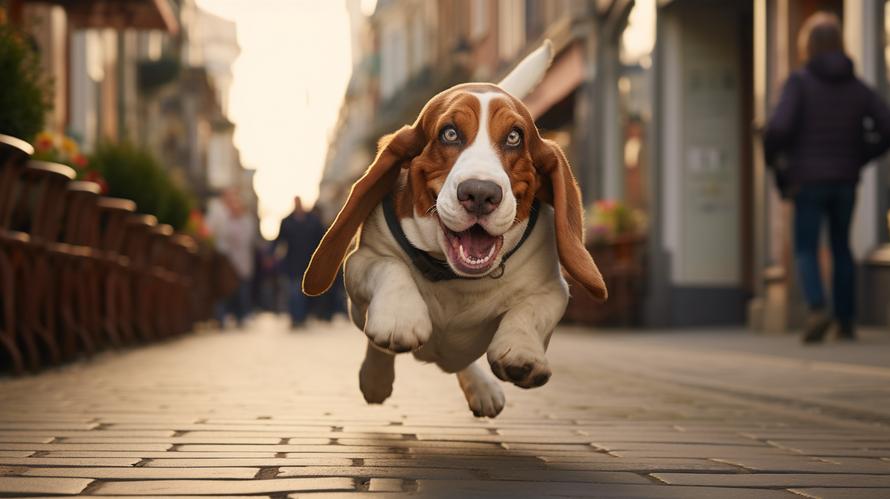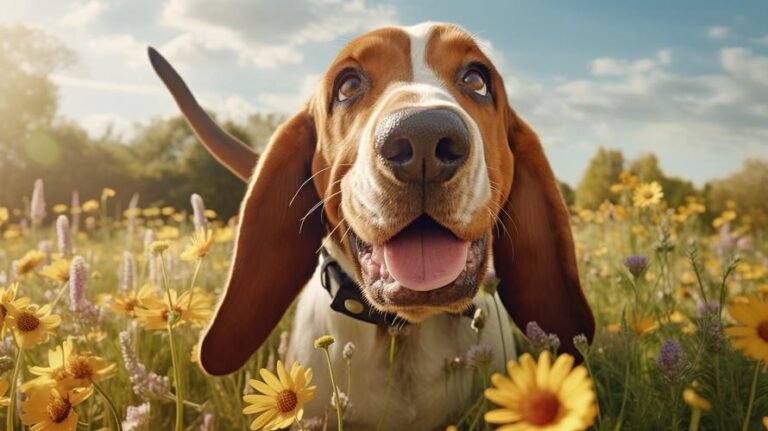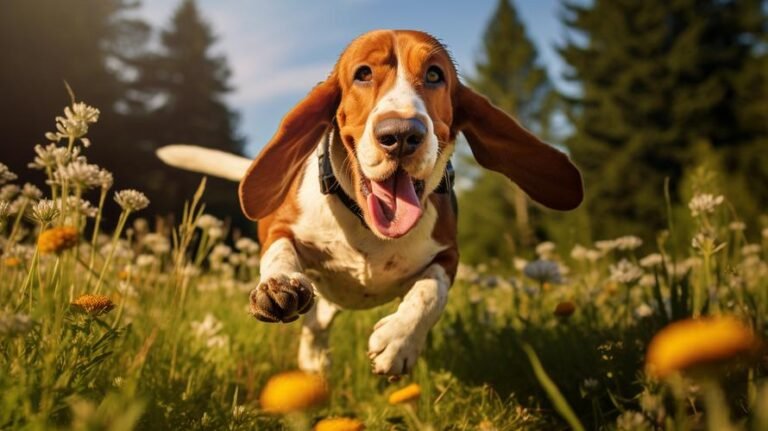From the adorable droopy ears to the sorrowful eyes, the Basset Hound is a breed that simply melts our hearts. This dog breed, originally bred in France as hunting dogs, is a loving family companion treasured by many. As Basset Hound owners and lovers, one key way to show your Basset Hound that you treasure them is by paying careful attention to their diet. Did you know that diet accounts for 60% of your Basset Hounds’ health? Who would have thought something as simple as mealtime could mean so much?
The Basset Hound breed needs particular nutritional attention due to their unique physiology. Bassets got a quirky horseshoe-shaped anatomy that includes a large bone structure, extra skin and ears, a short stature, and a tendency to overeat. Understanding what, how, and when to feed your Basset Hound can significantly impact not just their longevity but also their overall happiness and well being.
Let’s take this fantastic food journey together and uncover what’s best for your Basset friend! Buckle up, and let’s go!
Understanding Your Basset Hound’s Nutritional Needs
Basset hounds are known for their laid-back personality. They’re generally not as active as other breeds, which means they’ll need fewer calories per day. Hounds can lead a highly sedentary lifestyle, which, coupled with their love to eat, increases the risk of obesity if not properly monitored. A typical adult Basset Hound will need around 1350-1600 calories per day, depending on their age, weight, and activity levels. Puppies, due to their growth and higher activity levels, require around 1900 calories per day.
The Energy Giving Macros: Proteins and Fats
If we look inside your hound’s food bag, we’ll likely find proteins and fats. These are the primary drivers of energy in your dog’s diet.
Protein is essential for growth, repair, energy, and immune function. Quality food for your Basset Hound should have real meat listed as the first ingredient. This could include chicken, beef, turkey, or lamb. The protein content in your Basset’s food should range between 18%-25%.
Fats also play a vital role in your hound’s diet. They’re crucial for brain and eye development, particularly important for puppies. Also, they help in absorption of fat-soluble vitamins (A, D, E, K), and keep your dog’s skin and coat healthy. Look out for dog foods having named sources of fat like chicken fat or salmon oil instead of generic “animal fat”. Fats should make up about 10%-15% of your Basset’s diet.
Carbs: The Controlled Energy Source
While protein and fats are critical, carbohydrates are the wild cards in your Basset Hound’s diet. Although not a necessary nutrient in their diet, they provide beneficial fiber and work as a filling agent, preventing your Basset from overeating. However, too many carbs can lead to weight gain and contribute to the development of certain diseases. So, you should aim for moderate levels of carbs – approximately 14% to 30% of the total diet.
The Underdogs: Vitamins, Minerals, and Fiber
Just like for you and me, vitamins and minerals are essential for your hound. They ensure that your dog’s body functions properly, supporting bone health, nerve function, digestion, among other things.
Fiber is another crucial part of your Basset’s diet, often overlooked. It aids digestion, encourages a feeling of fullness, which curbs overeating, and helps maintain a healthy weight. Look for ingredients such as beet pulp, psyllium husk, and pumpkin as excellent sources.
Specific Nutritional Considerations for Basset Hounds
As previously mentioned, Basset Hounds, with their unique body structure, are prone to certain health conditions. Here are some ingredients to include in their diet to support these particular health issues.
1. Joint Problems: Due to their heavy bodies and short legs, Bassets are prone to hip and elbow dysplasia and arthritis. Thus, food rich in glucosamine and chondroitin can help support healthy joints.
2. Skin Conditions: Bassets can have some skin issues, primarily related to allergies. Foods rich in Omega-3 and Omega-6 fatty acids can support skin health.
3. Bloating: Basset Hounds are also susceptible to bloat, a medical emergency that can be caused by eating too quickly or eating too much. Foods with high fiber content can help, along with some good feeding habits.
Feeding habits are just as important as what you feed them. Consider dividing their meals into small portions eaten throughout the day and avoiding vigorous exercise around meal times.
Wrapping up, feeding your Basset Hound isn’t rocket science, yet it requires a conscious approach. They are not just what they eat, but also how and when they eat. Their unique needs and propensity for certain health issues means their nutrition should have a careful balance of proteins, fats, carbs, fiber, vitamins, minerals, and specific ingredients to support their health.
Remember, each Basset Hound is unique, and their needs can change over time. What’s stated here are general guidelines and should not replace professional veterinarian advice. When in doubt, always seek professional help. After all, our droopy-eyed friends depend on us for their health and happiness!



